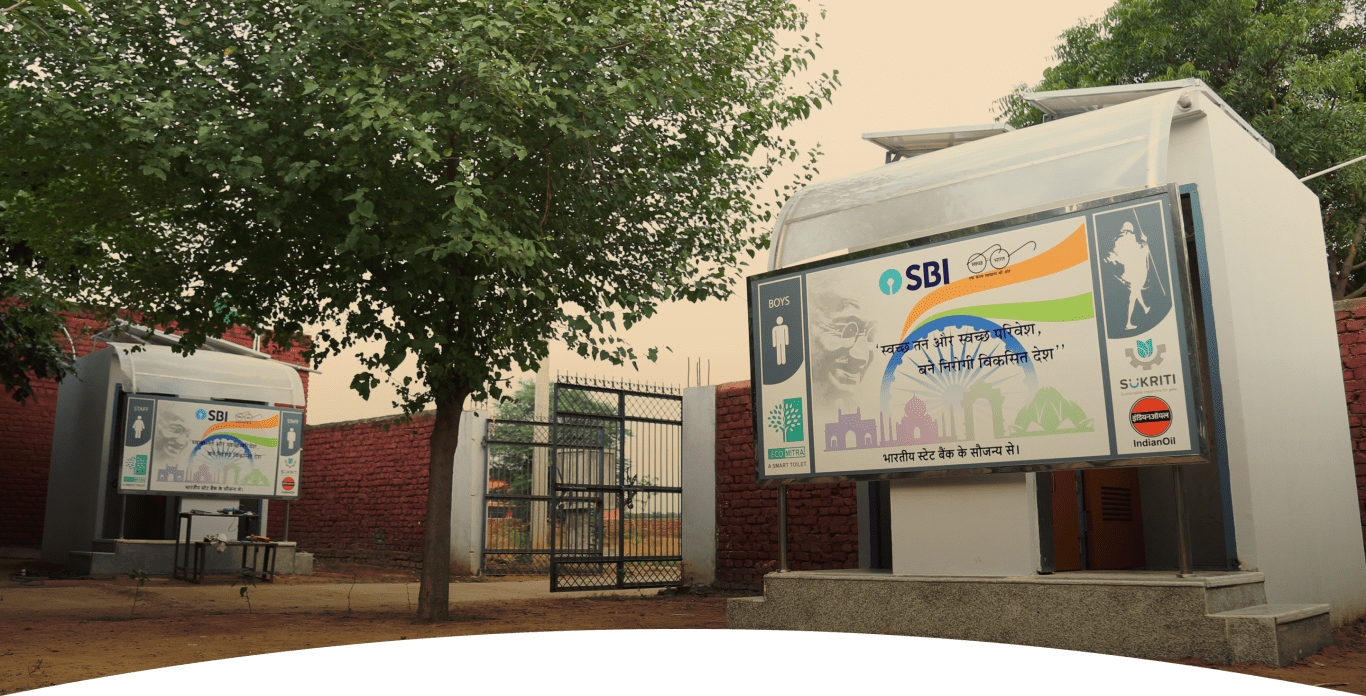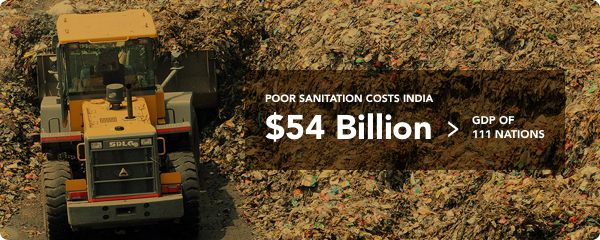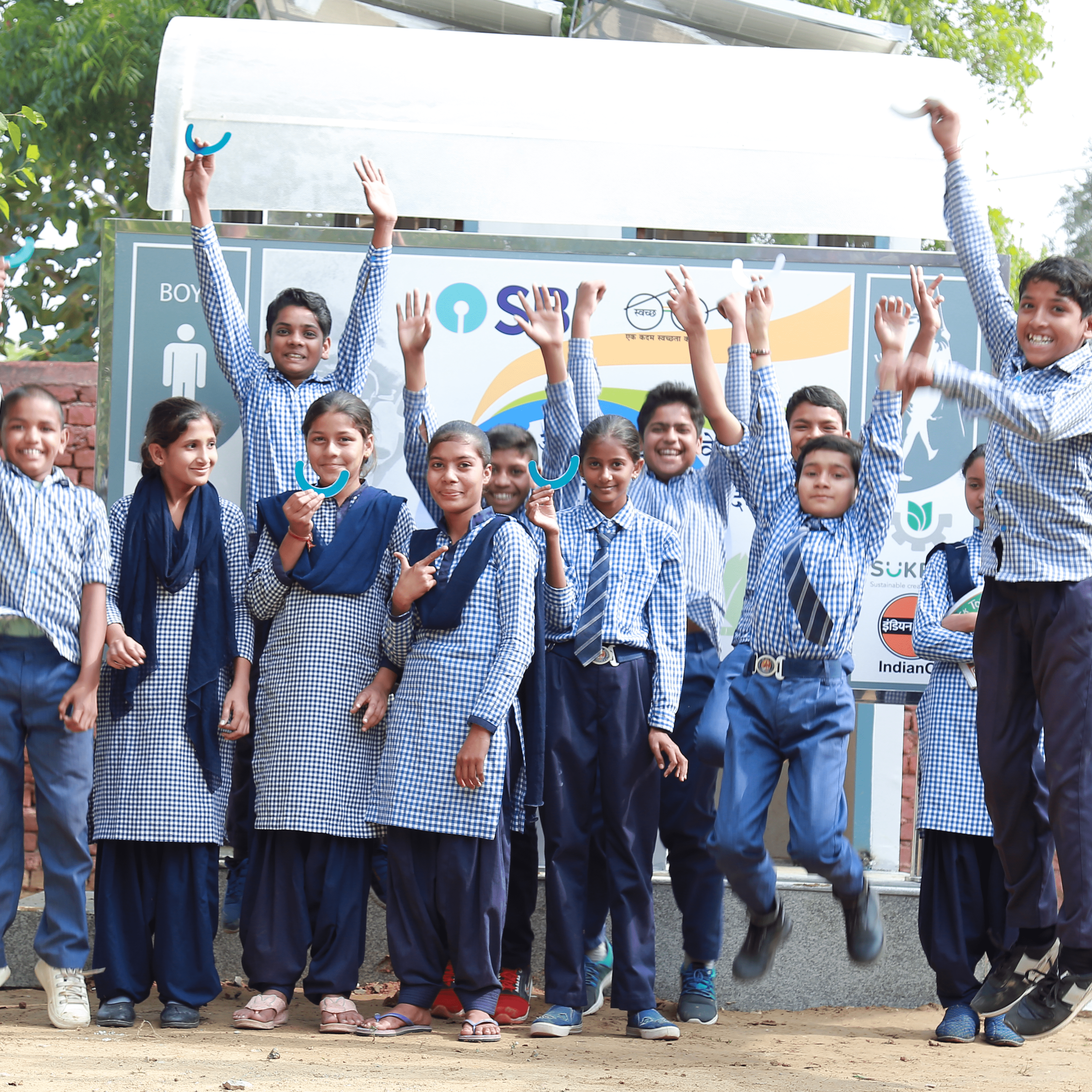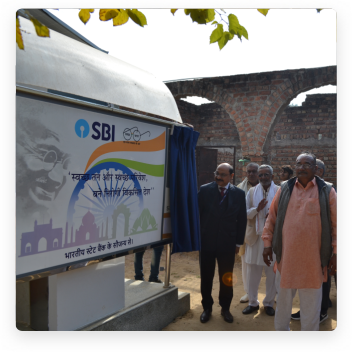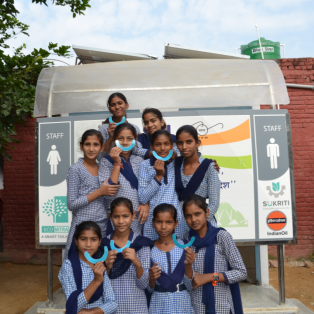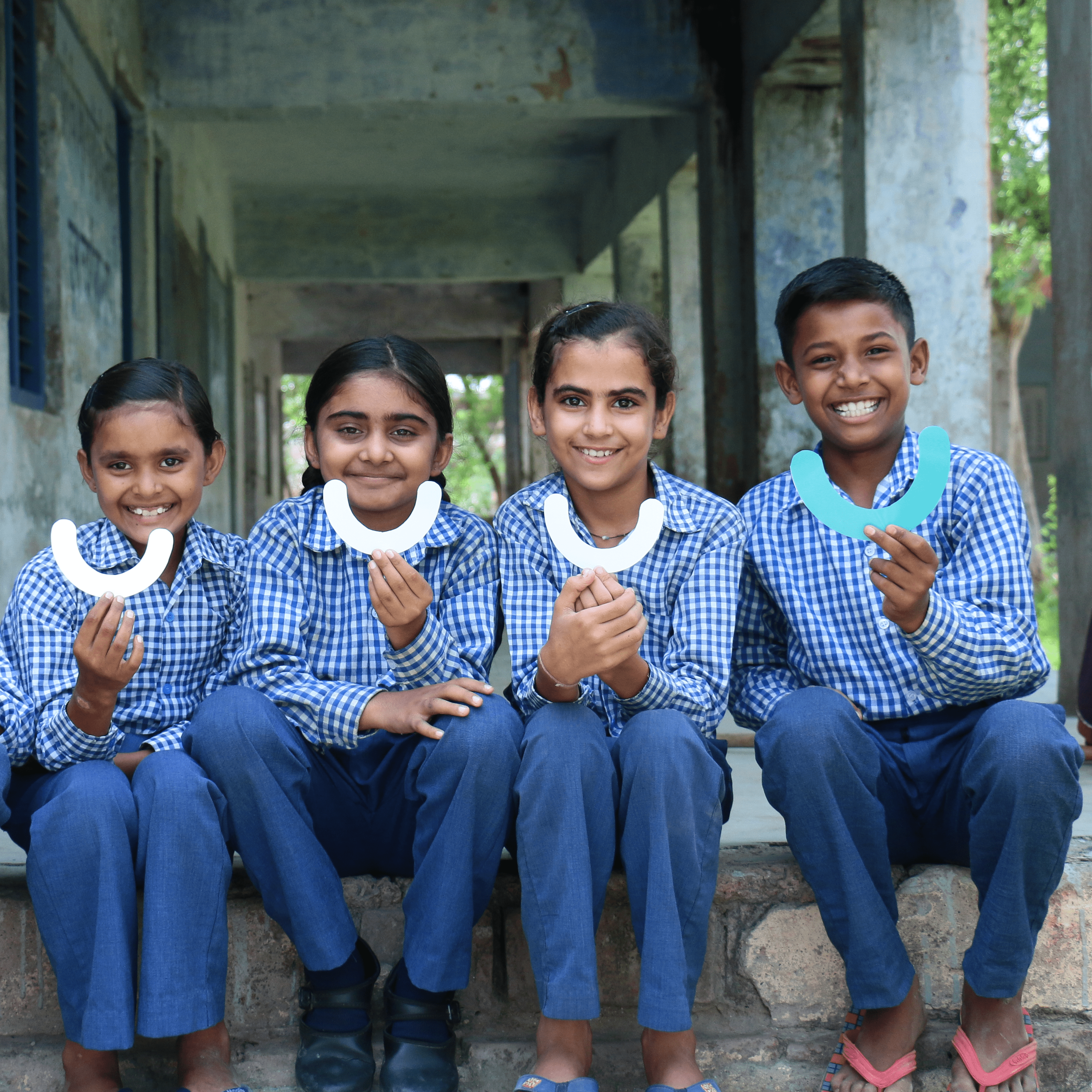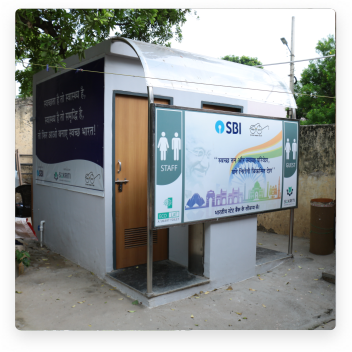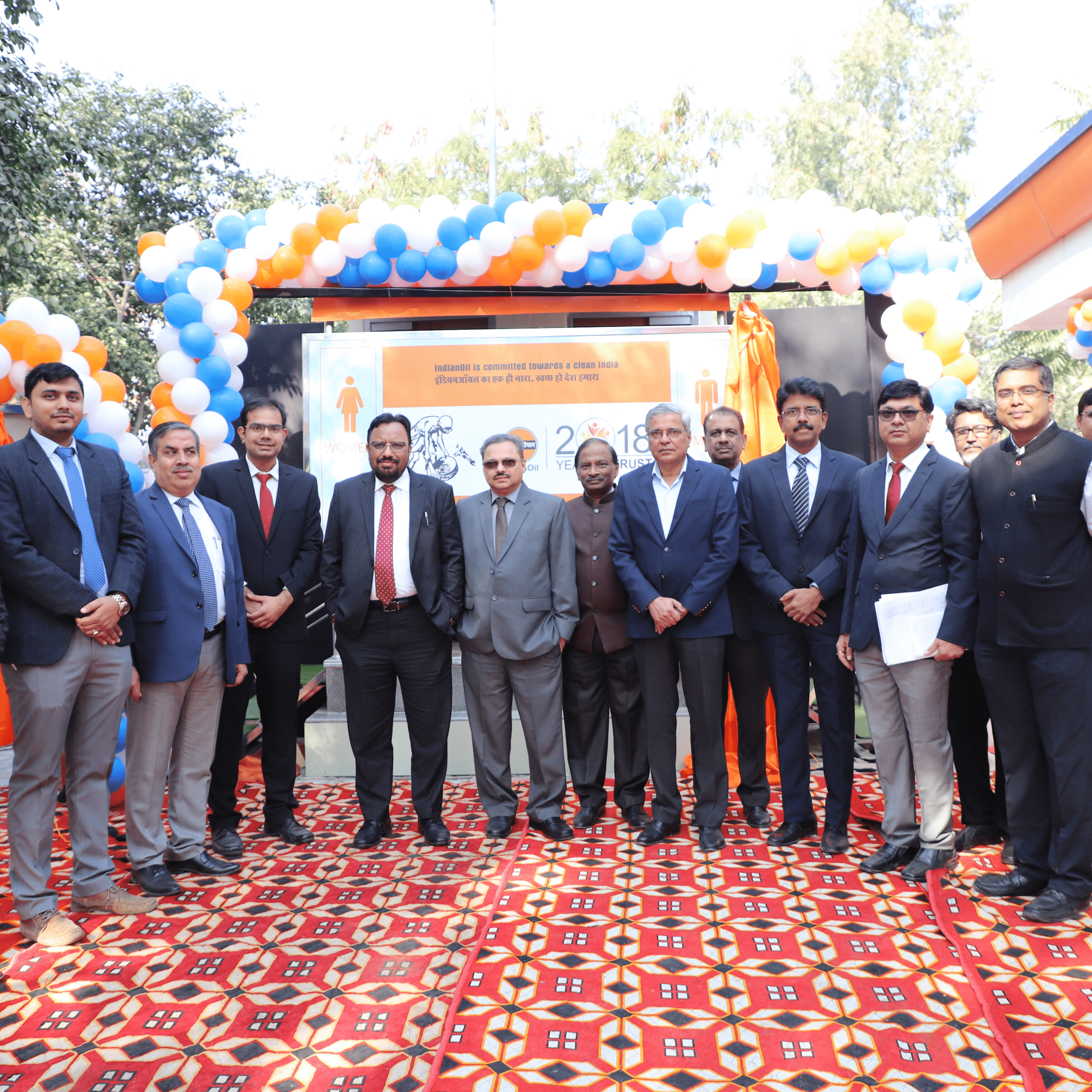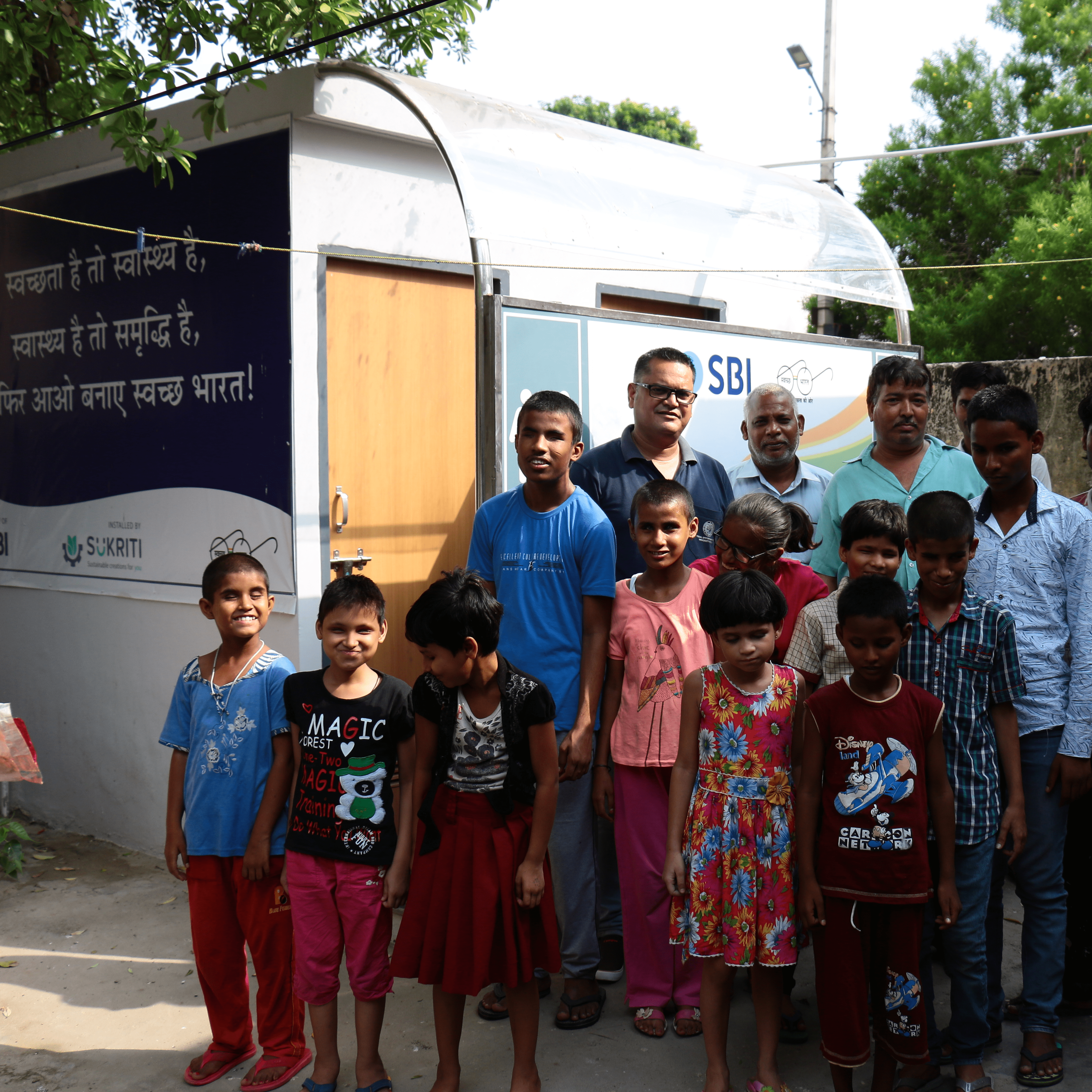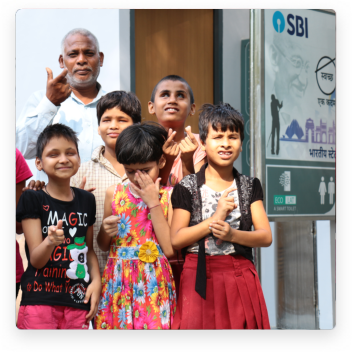Today, public toilets in India suffer from three major challenges:

Constant maintenance

Uninterrupted water supply to meet high water requirements

Inadequate waste disposal mechanisms
A combination of these three factors forces the general public, especially women to use open spaces for urination and defecation. This not only compromises their dignity and safety, but also their health, causing various diseases, chronic illness, malnutrition, and on a much larger scale; the loss of human resource!
ECOMITRA : A SMART SOLUTION

EcoMitra saves 0.5 million litres of water per toilet every year
Prevents soil and water degradation caused by dumping of untreated waste
Solar panels save 1,000 units of electricity per Ecomitra every year
IMPACT
In the first five years, we are looking at directly impacting 5 million Indians who have to use unhygienic public toilets at their workplaces or while commuting. We are also looking at impacting students in government schools and institutions which do not have a single, well-maintained toilet within their premises; girls and women who have to change their diets out of the fear of safety while defecating in open, or who suffer from diseases due to unavailability of proper sanitary care; and the thousands of people who use unhygienic, poorly-maintained public toilets every day throughout the country.
